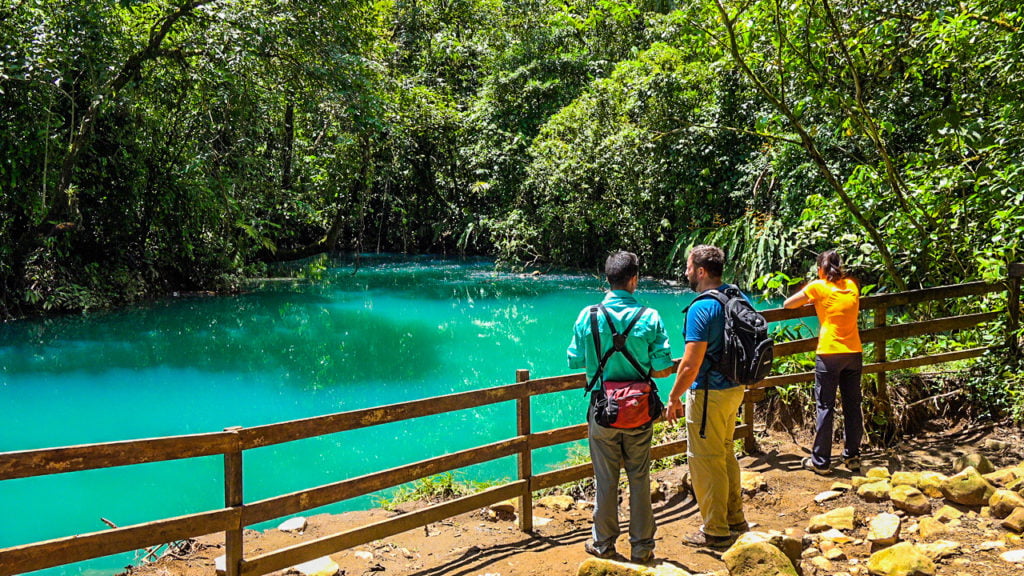In an era where our globe is feeling the strain of human activity, it’s crucial to reconsider the way we travel. A colossal 1.4 billion international tourist arrivals were recorded globally in 2019. (United Nations World Tourism Organisation). This massive influx of tourists worldwide puts considerable stress on the environment, local economies, and cultural heritage sites.
Yet, amidst these daunting figures, a ray of hope emerges. It’s called sustainable tourism. An approach to travel that respects and seeks to preserve both the environment and the local communities. This article provides an analytical dive into the world of sustainable tourism statistics. A testament to the blossoming sector that’s transforming how we view and partake in travel.

To make it more digestible, we’ll break down these stats into different sections. Each one shining a light on a particular aspect of sustainable tourism. From the surprising rate of its growth, to its profound impact on green travel. These Sustainable Tourism Statistics will offer an enlightening perspective on the current state and future trajectory of tourism. Ready to have your travel perspective transformed? Let’s venture forth.
A Deep Dive Into Sustainable Tourism Statistics: Growth, Impact, and Prospects
When we talk about sustainable tourism, we’re referring to a sector that is not only growing but thriving and redefining the travel industry as we know it. The global sustainable tourism market was valued at about $489 billion in 2019 and is expected to grow by a further $335 billion by 2027, registering a CAGR of 9.2% to 2027, according to Allied Market Research. This considerable growth indicates that more travellers are becoming conscious about the ecological and socio-cultural footprint they leave behind.
The Sustainable Numbers
One of the most shocking sustainable tourism statistics comes from Booking.com’s sustainable travel report. The report found that an impressive 72% of travellers believe that people need to act now and make sustainable travel choices to save the planet for future generations.
Furthermore, the same study found that 68% of global travellers intend to stay in eco-accommodation in the upcoming year, a sign that our article about luxury eco tourism accommodations is spot-on in terms of trends.
Another shocking statistic shows that the eco-tourism sector is growing at a rate three times faster than that of traditional tourism, according to the International Ecotourism Society.
On the economic front, the UNWTO forecasts that by the end of this decade, the market share of ecotourism will reach about 35% of the global travel market.
But it’s not just about the economy and the environment. Sustainable tourism also has a profound social impact. The World Travel & Tourism Council states that one in ten jobs worldwide is in tourism, highlighting its role in local economies and the effect on local communities.
Yet, sustainable tourism isn’t just an industry trend—it’s a global movement aiming to balance the needs of travellers, host communities, and the environment. Let’s dig deeper into the EU’s efforts in promoting sustainable tourism.
Unravelling the Impact of Sustainable Tourism: A Statistical Perspective
The impact of sustainable tourism reaches far and wide, bringing about significant transformations in local communities, economies, and the environment. Not convinced? Here’s what the numbers tell us:
According to a compelling study published in the Journal of Sustainable Tourism, communities that embrace sustainable tourism practices report a noteworthy uplift in their local economies. For instance, in Costa Rica, a country known for its commitment to sustainable tourism, the sector contributed to an impressive 8.2% of its Gross Domestic Product (GDP) in 2019, which is higher than the global average of 3.5%, according to the World Travel & Tourism Council.
Let’s explore further. Our deep dive into Costa Rica’s commitment to sustainable tourism is a testament to the remarkable socio-economic benefits it brings to local communities. But this is not an isolated case. Globally, 1 in 10 jobs is in the tourism sector. This is according to according to a report by the UN World Tourism Organisation (UNWTO). This makes tourism a critical player in achieving the Sustainable Development Goals (SDGs).
Ecosystems & Heritage
The commitment to sustainable tourism isn’t just about the economy. A 2018 Global Impact Study by the Travel Foundation revealed that destinations prioritising sustainable tourism practices had 7% more species diversity than those that didn’t. This shows that sustainable tourism plays an integral role in environmental conservation and biodiversity protection.
A crucial aspect of sustainable tourism is the preservation of cultural heritage. As per a UNESCO report, sustainable tourism initiatives help conserve World Heritage sites. As well as bolstering local cultures. For instance, Bhutan’s unique High Value, Low Impact model has been instrumental in preserving its rich cultural heritage while promoting sustainable tourism.
The impact of sustainable tourism extends to tackling global challenges too. According to the International Ecotourism Society, eco-tourism can significantly mitigate the effects of climate change, being 3 times more effective in reducing carbon emissions compared to deforestation.
To delve deeper into the global initiatives and impact of sustainable tourism, take a look at this comprehensive report by the World Travel & Tourism Council.
Charting the Future: Sustainable Tourism Statistics Forecast
Given the transformative role of sustainable tourism in promoting responsible travel and fostering socio-economic development, it’s unsurprising that the sector’s future looks remarkably promising. Let’s delve into the figures to get a clearer picture:
Recognising its immense potential, the United Nations declared 2022 as the ‘Year of Sustainable Tourism for Development.’ This global focus is aimed at advancing the contribution of the travel industry. Working towards achieving the Sustainable Development Goals (SDGs).
There’s also been a considerable surge in public interest in sustainable tourism. Google Trends data reveals a whopping 65% increase in searches for “sustainable tourism” over the past five years. This demonstrates a growing global consciousness and commitment to travel responsibly.
This is more than just a trend. According to the Mintel Report on The State of Sustainable Travel 2022, 53% of global travellers are more likely to book with a company that emphasises sustainability. Moreover, the report indicates that 62% of travellers often consider the environment when choosing hotels, transportation, and meals.
The transformative potential of sustainable tourism has also caught the attention of the business world. According to the latest trends in Green Business Travel, many corporations are now prioritising eco-friendly travel practices as part of their commitment to sustainability.
We can look ahead to a recent report by the World Travel & Tourism Council (WTTC). They predict that by 2025, nearly two-thirds of worldwide travellers will prefer brands that can offer a meaningful experience aligned with their personal values and interests, with sustainability at the core.
Given these encouraging statistics, it’s evident that sustainable tourism is set to take centre stage in the future of travel. The journey has only begun, and each of us has a part to play in creating a more sustainable and inclusive world.
Conclusion
These sustainable tourism statistics shed light on the immense potential this form of travel holds. It’s not just about preserving the environment – it’s about building a more equitable and sustainable world. So next time you plan a trip, consider how you can make it more sustainable. The world, and future generations, will thank you.
Unpacking Sustainable Tourism Statistics: Quick Facts & FAQs
What are some compelling statistics on sustainable tourism?
In the world of travel, 87% of global tourists have expressed a desire for more sustainable experiences. This growing consciousness is evident with a considerable 65% spike in Google searches for “sustainable tourism” over the past half-decade.
Can we really pin down the importance of sustainable tourism?
Undeniably, sustainable tourism is making a difference. By mitigating adverse environmental effects, championing cultural heritage preservation, and economically empowering local communities, it’s revolutionising the traditional concept of tourism.
Is the sustainable tourism sector expanding?
Absolutely! Sustainable tourism is more than a fleeting trend – it’s a robust, expanding movement. As per the UNWTO, sustainable tourism practices are steadily on the rise worldwide.
Does sustainable tourism have a robust future ahead?
Without a doubt! The future of sustainable tourism is radiant. Backed by the UN’s recognition and spurred by growing public interest, this responsible approach to travel is poised for significant expansion.





